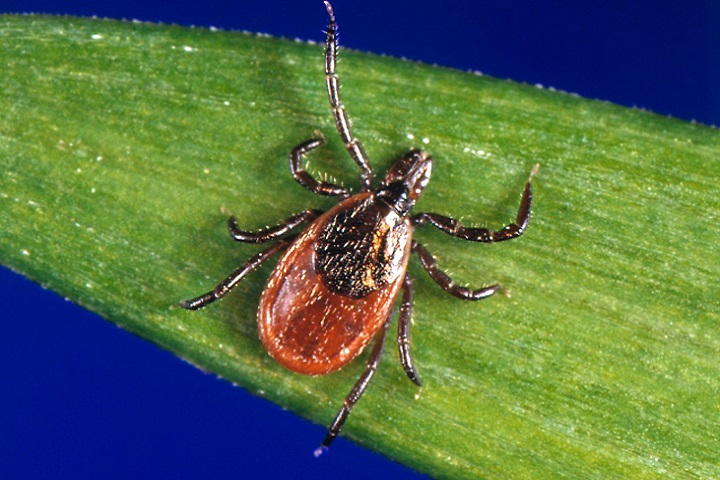1 July 2020
Myth Busting: Lyme Disease
Posted by Shane Hanlon
This is part of a student blog series as part of the University of Pittsburgh’s Disease Ecology Class that our own Shane M Hanlon is currently teaching. Find out more about the series and read all the posts here!
By Alex Solopenkov
Myth: Autism is caused by / correlated with Lyme Disease
-

Black-legged tick. Credit: CD
There have been many claims that Lyme disease has correlations to the presence of autism within people. There are people that seem to claim that there are more than 20% rates of seropositivity for Lyme disease within individuals that have autism. There have been statistics reported in some studies showing that there’s a number close to 9/10 of patients that are autistic have the tick-borne virus. The problem with these studies is 1) they have not been peer-reviewed and 2) some doctors use this as a cash grab to prescribe antibiotics to autistic children, leading to this misconception to be abused. However, there is an experiment done by Armin Alaedini that has proved against this myth.
The Experiment
The method of the experiment starts with the collection of 120 serum samples from children aged from 2 to 18 of those that have autism and those that don’t. They used people from two programs, AGRE and WCARP. In the AGRE program, those that were tested for having autism met the criteria for the Autism Diagnostic Observation Schedule (ADOS) and Autism Diagnostic Interview in order to serve as having autism. The people from WCARP were only confirmed from the ADOS criteria. Data from the AGRE program was between 1999-2001 while the SCARP program data was from 2010-2012. What they tested for from the samples was the antibodies of B burgdorferi to be present because the bacterium is the underlying cause of Lyme disease. They went further into testing through a 2-tier algorithm that screened for B burgdorferi immunoglobulin G and M antibodies in an enzyme-linked immunosorbent assays. If any specimens were borderline or positive, they would be further tested in western blotting for IgG/IgM antibodies.
The results came out that from the population of patients with autism, 1 was positive for IgG, and 4 were borderline for IgM, while in the unaffected control group, 4 were positive and 1 was borderline for IgG and 1 positive for IgM. All samples that were positive or borderline ended up giving through further analyzation using the Western blot and all ended up being negative for the antibody reactivity. From this, we see that none of the children with autism or who are unaffected had evidence of Lyme disease. Although this case does not address whether or Lyme disease causes autism-like behavior deficits, it does rule out the suggested high rates of Lyme disease/seroprevalence of antibodies in kids that are autistic.
Overall these results show us how some conceptions of diseases need to be further elaborated on through new experiments, along with the importance of having the research peer-reviewed and confirmed. It becomes a terrible thing that such a misconception can influence abuse from doctors to take advantage of families with people who have autism, by serving as a money grab along with the unnecessary push for taking antibiotics. One thing we know for certain now is that autism is not caused/correlated with Lyme disease.
More information on the study and information found in the links below:
- https://www.ncbi.nlm.nih.gov/pmc/articles/PMC3956119/
- https://www.the-scientist.com/daily-news/autism-lyme-correlation-debunked-39409



 The Plainspoken Scientist is the science communication blog of AGU’s Sharing Science program. With this blog, we wish to showcase creative and effective science communication via multiple mediums and modes.
The Plainspoken Scientist is the science communication blog of AGU’s Sharing Science program. With this blog, we wish to showcase creative and effective science communication via multiple mediums and modes.